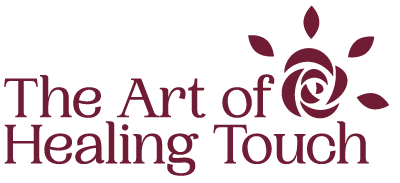Did you recently undergo breast augmentation surgery and are worried you have a breast implant infection?
Breast augmentation is a life-changing surgery that, like any other surgery, comes with potential adverse side effects.
I want to take a moment to answer some of your questions about breast implant infection and other side effects you may have from your surgery.
How Do You Know If You Have a Breast Implant Infection?
A high fever, breast pain, and swelling are tell-tale signs of a breast implant infection. Infection typically occurs within the days or weeks following your surgery. You could have an infection if you notice excessive pain or swelling.
What Causes a Breast Implant Infection?
Your implants can develop into an infection even years after your procedure.
Fungal and bacterial infections from other parts of your body can spread into your blood, leading to an infection in your breasts.
The primary causes of infection include:
Contaminated Wounds
Microorganisms can cause bacterial infections. This is pretty common after breast augmentation surgery.
Allergens on Surgery Tools
Improper care of surgical tools can also lead to infections. Professional surgeons know how to cleanse their tools and keep them free of contaminants properly.
Piercings & Tattoos
If you get a piercing or tattoo in the affected area of your implants, be aware that this puts you at greater risk for infection.
Cell Lymphoma
Another potential cause for infection is cell lymphoma, also known as cancer of the blood’s lymphocytes. This infection can spread to your implants and surrounding scar tissue.
Can A Breast Implant Infection Be Cured?
Depending on the severity of your breast implant infection, you could be faced with treatment of antibiotics or surgery. In some cases, if you have breast implant illness, you may need surgery to remove your implant and the scar tissue surrounding the implant.
Your doctor will be the one to decide whether or not these steps are necessary.
How Long Does it Take to Recover From Breast Implant Infections?
Sometimes, your breast implant infection will be so bad that your implants must be removed.
For many women, this is enough to eliminate symptoms of their infection.
However, some women may have to wait up to 30 days after surgery to experience relief.
The American Society of Aesthetic Plastic Surgery conducted a survey that revealed within three months of surgery, and most women will no longer have symptoms of the infection.
How to Avoid Infection After Surgery
To help your body stave off infection after your plastic surgery, consider the following:
Keep Your Incision Clean
The greatest risk of infection from breast implants comes immediately after surgery. Keeping the incision area clean and free from bacteria is critical for the health of your implants.
Reduce Physical Activity
Putting undue stress on the incision area of your breast implants can cause serious issues. Reduce physical exercise after surgery to help your body heal and fight infections.
Lymphatic Massage
Once your incisions are healed, schedule an appointment for a lymphatic massage. This helps your body drain areas where bodily fluid can pool. This also helps prevent swelling, which puts you at risk of infection.
Other Side Effects of Breast Implants
Breast implant infection isn’t the only side effect of breast implants. A few other common issues that occur from breast augmentation include:
- Breast Pain
- Scar Tissue
- Changes in Nipple and Breast Sensation
- Leakage and Rupture
Keep Your Breasts Healthy with Lymphatic Massage
If you’ve recently had breast implant surgery, I invite you to consider lymphatic massage. It’s proven to reduce lymphatic fluid buildup and prevent infection after surgery.
Curious about what lymphatic massage is or how it can help your body? Explore a few of my other posts on the topic, including:
- 7 Tips for Healthy Breasts
- The Powerful Link Between Your Breast Health & Lymphatic System
- Self-Lymphatic Massage Tips & Tricks
Call today to schedule a 30 minute breast health consultation.
